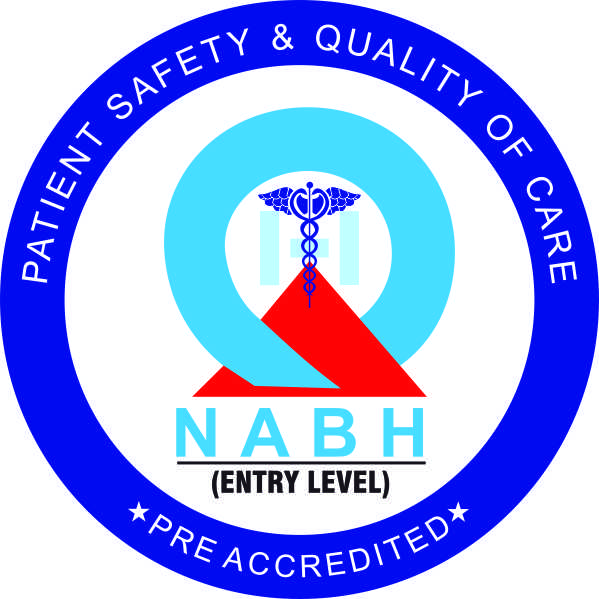
The Role of Technology in Modern Hospitals:
In today’s fast-paced world, technology is at the heart of every industry, and healthcare is no exception. Hospitals have embraced modern technological advancements to improve patient care, streamline operations, and enhance the overall healthcare experience. From electronic medical records (EMRs) to telemedicine, the integration of technology in healthcare has revolutionized the way hospitals function. This blog explores the key technologies shaping modern hospitals and their impact on patient care.
1. Electronic Medical Records (EMRs): A Digital Revolution
Gone are the days when doctors and nurses relied solely on paper charts to manage patient records. With the advent of EMRs, healthcare providers can now access complete patient histories at the click of a button. EMRs not only improve the accuracy and accessibility of patient data but also reduce the risk of medical errors. Patients benefit from more coordinated care, as multiple healthcare providers can collaborate seamlessly with access to real-time information.
2. Telemedicine: Breaking Geographic Barriers
Telemedicine has redefined the way healthcare is delivered, especially in remote and underserved areas. Patients can now consult specialists from the comfort of their homes, eliminating the need for long travel distances. Telemedicine has been particularly useful in managing chronic diseases, providing mental health services, and even conducting virtual follow-ups for post-surgery patients. Hospitals equipped with telemedicine services can extend their reach and improve patient access to specialized care.
3. AI and Machine Learning: Personalized Treatment Plans
Artificial intelligence (AI) and machine learning are rapidly making their way into hospital systems, enabling healthcare providers to offer more personalized care. These technologies can analyze vast amounts of patient data to identify patterns, predict outcomes, and suggest tailored treatment plans. AI-powered diagnostic tools help doctors make more accurate diagnoses, leading to faster and more effective treatments.
4. Robotic Surgery: Precision and Minimally Invasive Procedures
Robotic surgery has revolutionized the operating room by allowing surgeons to perform complex procedures with greater precision and control. Minimally invasive robotic surgeries lead to shorter recovery times, reduced pain, and fewer complications. This technology is especially beneficial for delicate procedures such as heart surgery, neurosurgery, and orthopedic operations.
5. Wearable Health Devices: Empowering Patients
Wearable devices like fitness trackers, smartwatches, and continuous glucose monitors have empowered patients to take charge of their health. These devices monitor vital signs, track physical activity, and even detect irregularities in heart rhythms. Hospitals can integrate data from wearable devices into their healthcare systems, allowing doctors to monitor patients remotely and intervene when necessary.
6. Hospital Management Software: Streamlining Operations
Behind the scenes, hospital management software plays a crucial role in ensuring that hospital operations run smoothly. From scheduling patient appointments to managing inventory and billing, these systems streamline administrative tasks, reduce paperwork, and enhance overall efficiency. This allows healthcare providers to focus more on patient care and less on administrative burdens.
7. 3D Printing: Revolutionizing Prosthetics and Implants
3D printing technology is changing the landscape of personalized medicine by creating custom prosthetics, implants, and even organs. Surgeons can now create patient-specific models for surgical planning, improving the precision and success of complex procedures. 3D printing also offers a cost-effective and rapid solution for creating medical devices.
8. Cloud Computing: Secure and Scalable Data Management
Cloud computing has transformed the way hospitals manage and store data. By moving patient records and hospital information to secure cloud-based systems, hospitals can access data from anywhere, improve collaboration, and ensure data backup in case of emergencies. Cloud systems also provide scalability, allowing hospitals to expand their services without worrying about physical data storage limitations.
9. Cybersecurity: Protecting Patient Data
As hospitals adopt more digital technologies, safeguarding patient information becomes paramount. Healthcare data is sensitive and valuable, making it a prime target for cyberattacks. Hospitals must invest in robust cybersecurity measures, including encryption, firewalls, and regular security audits, to protect patient data from breaches and unauthorized access.
Conclusion: A Technologically Advanced Future
The integration of technology in hospitals is not just about improving efficiency; it's about enhancing the quality of care patients receive. From AI-driven diagnostics to telemedicine and robotic surgeries, modern hospitals are on the cutting edge of healthcare innovation. As technology continues to evolve, the future of hospitals looks promising, with even more breakthroughs that will undoubtedly continue to improve patient outcomes and experiences.
At [Your Hospital Name], we are committed to staying at the forefront of healthcare technology. Our state-of-the-art facilities, combined with compassionate care, ensure that our patients receive the best treatment possible. Whether it's a routine check-up or a complex surgery, we are here to provide world-class care, powered by innovation.
Feel free to modify the hospital's name and customize any sections to fit your specific focus or services. Would you like to add any specific technology or service your hospital specializes in?

